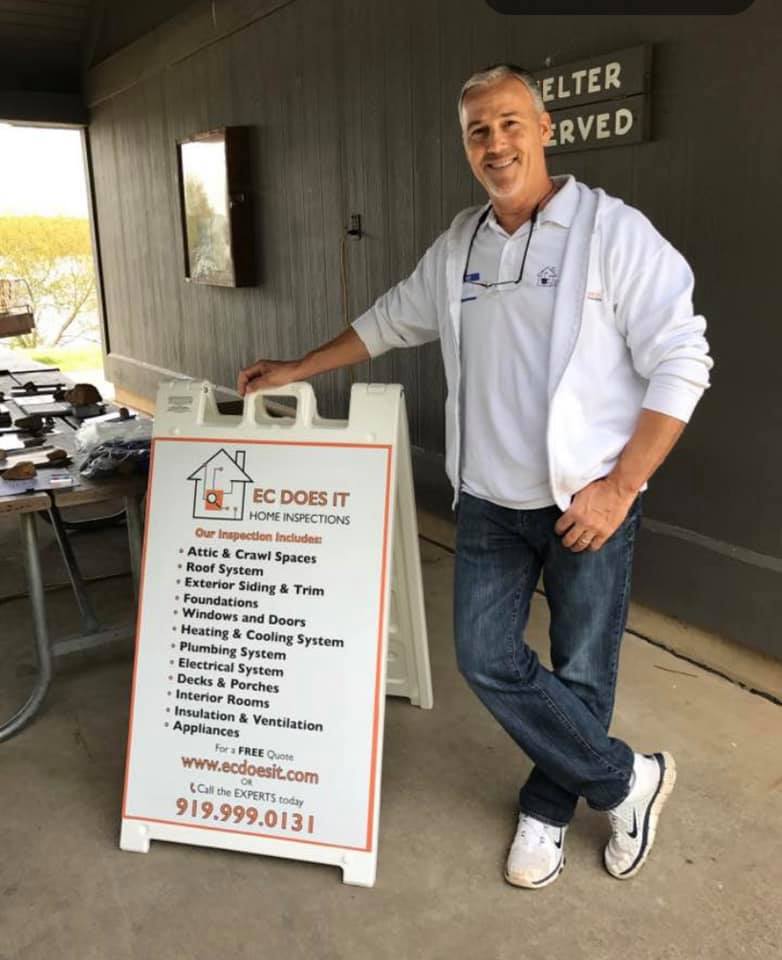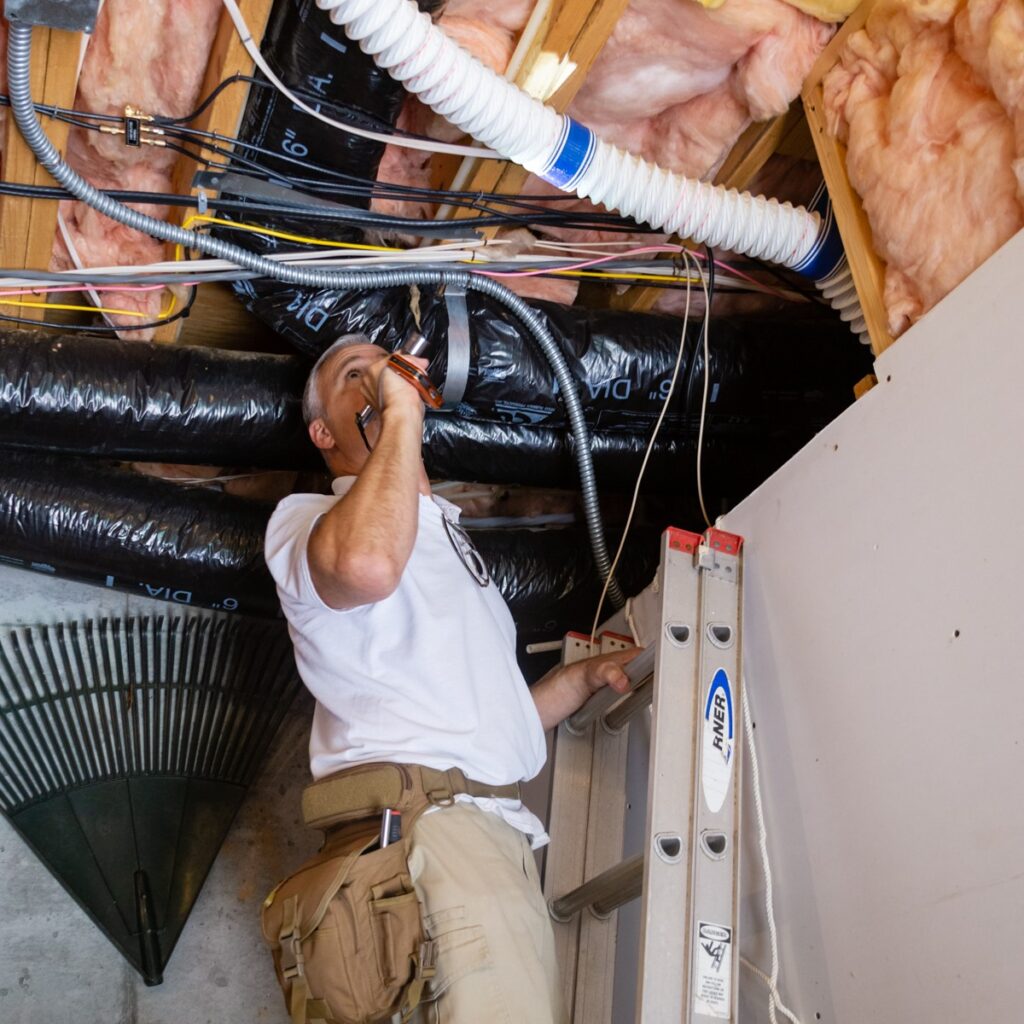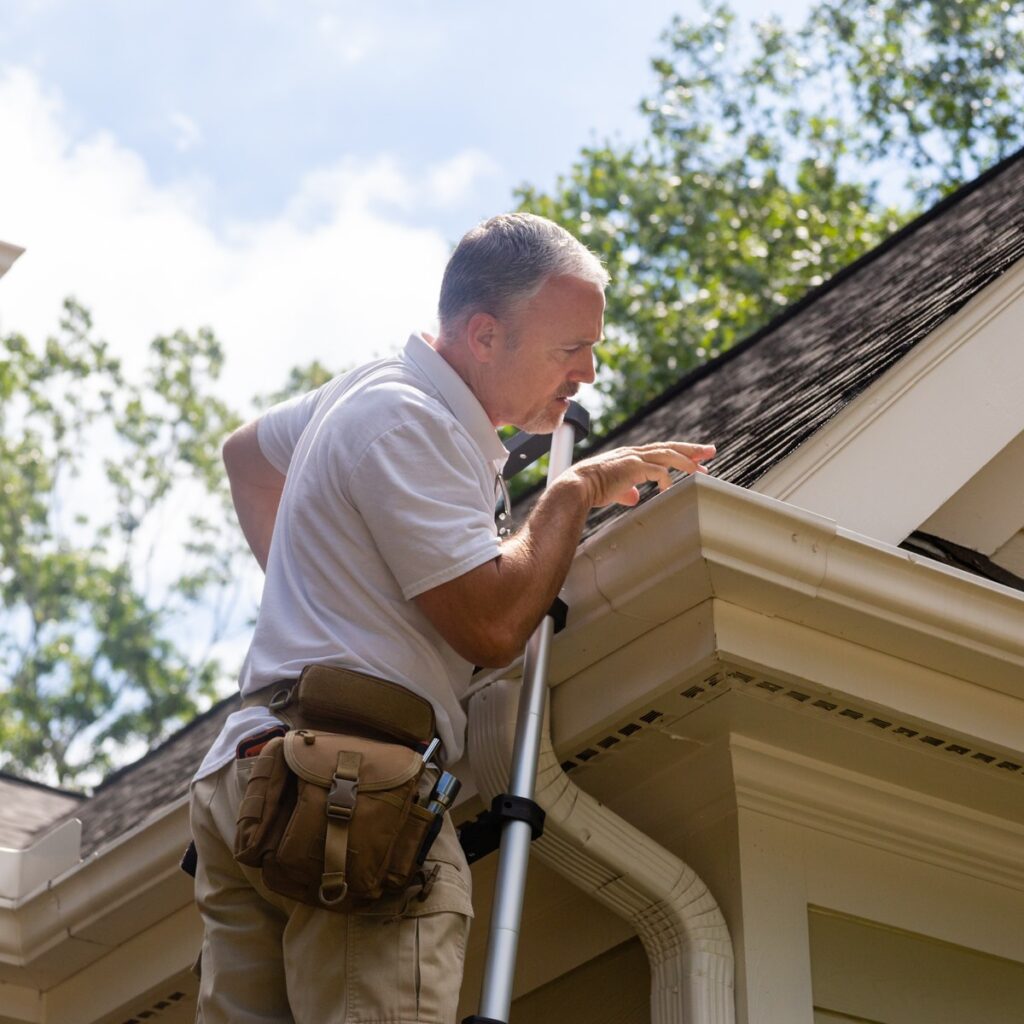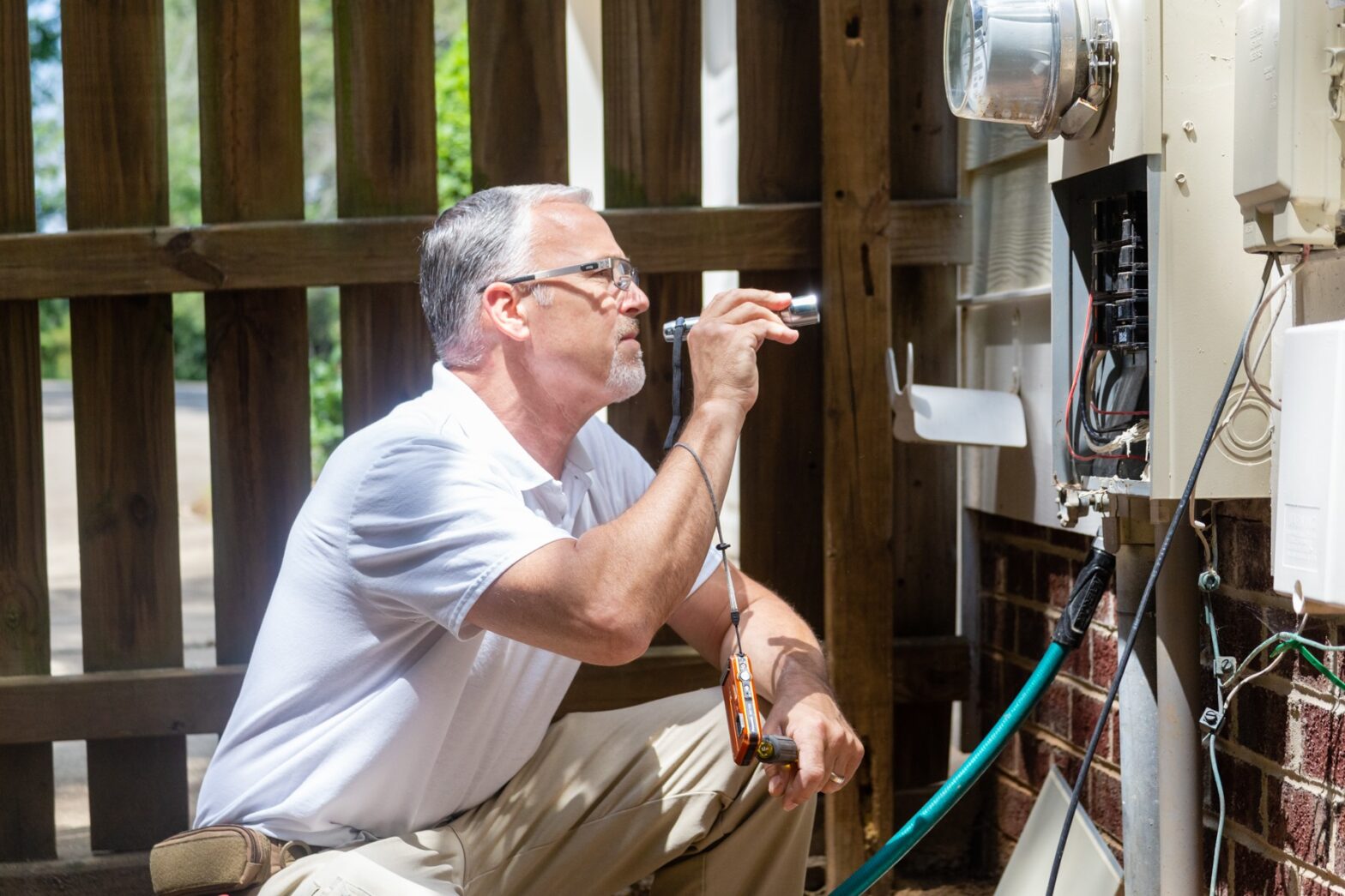One of the most crucial phases in the purchasing process is inspection. If you are house-hunting in the North Carolina market, you’ve probably heard of or experienced the concept of due diligence. That means you put some money down as part of your offer after you’ve visited the property (unless it’s a blind offer) but before a full inspection.
For investors, it might not be a big problem, as they are used to and can handle most situations. For first-time home buyers who have not experienced this process of diving down into the walls (literally) and understanding the full condition of the house before purchasing, that could turn your dream house into a complete nightmare.
We sat down with Eddie Carapezza, a licensed North Carolina home inspector from EC Does It Home Inspections, to talk about what you should look for when you check out a house to try to better inform your purchasing decisions.

Eddie is originally from Long Island, NY where he worked as a Paralegal and Real Estate Agent before joining The Home Depot for a career that spanned more than 20 years. During his tenure at Home Depot, he held multiple roles including District Loss Prevention Manager, District Operations Manager, and Store Manager.
With over 20 years in the home improvement industry, Eddie has gained extensive knowledge of the products, systems, and components that are typically used in residential construction.
Eddie is passionate about real estate investing and has completed multiple rehab projects himself over the last 20 years before relocating to Raleigh in 2013.

Eddie created EC DOES IT Home Inspections with a commitment to bringing high-quality home inspections at an affordable rate. His attention to detail and incredible work ethic, as well as the integration of technology, brings a talented and unique skill set to this industry.
Are there any specific things you should know about the area that the house is in?
Is it public or private utility- well or city water? There are pockets of high radon in Raleigh. Is your property in one of these pockets and does it have/need a radon mitigation system? Know what the differences are between a slab, a crawlspace, or a basement. Some would love a slab because you won’t have mold, and it does not decay. Some people would love to get into their electrical and pipes easily, so they’d rather have a crawlspace, but then you have mold.
One of the most important things you have to check for and be aware of is water near the house- is it a flood zone? Does the house have gutters? Water is the enemy unless it’s in the pipe. It could cause insect damage, mold, decaying wood, condensation, or lack of gutters. If you have a body of water on the premises- It matters how close it is to the house. Try to keep water away from the house- specifically the foundations. For every stain you see, you have to check it carefully.
Quick advice- find a homeowner checklist and use that to maintain the house.
Is it crucial to do a radon test?
No, but highly recommended; It is the second cause of death in the US after cigarettes. You pay about $150 to do the test or get a kit online and check that out. While there are online sites to help you understand the area, Radon levels can change from house to house and change over time. You might not have it, but your neighbor will, or you might not have it now but will start getting it after several years if there is a pocket of it in your area. There are a lot of things that affect how it comes out of the ground, and you can never know exactly where it starts or ends.
What are the top things you should look for when walking into a house for the first time?
-Smell – does it smell musty/funky -wet?
-Visual signs of stains
-Quantity, location, and size of signs or cracks in walls or ceiling- to really know what’s causing them, you need to do an invasive inspection, and that would require a licensed contractor or engineer to determine the severity of cracks.
-Before entering the house, while you are still outside on the street-look at the ridge of the roofline to see if it is horizontal. Is the house leaning down or to the side? Are there any visual cracks or signs of decay?

Are there specific things we should look out for when purchasing an older house?
In general- yes, it’s better to inspect everything. Up until the 80s, most houses were built much better because it took them more time to build, and the material was better quality; with that said, not everything has an infinite service life.
It is crucial that you get a trustworthy home inspector because, in houses that were built lower to the ground, there is less space from the ground, and you can’t see what’s going on underneath. That creates more potential surprises for the cost of ownership.
Back then, there were not a lot of licensed professionals who built or maintained the house, it was mostly your uncle who was somewhat handy around the house and helped fix your electricity or walls, and so forth. And that affected the basis of the house to keep it up with current standards.
When a house is over 20 years old and especially 30/40 years old, there would be a lot of warning signs. Quick Advice– check the plumbing and upgrade it, as well as the electrical panel (especially if it still has the old Edison fuses), and upgrade to new standards. The same goes for asbestos or lead (if it’s not airborne, you are fine). Keep in mind that for those reasons, home inspectors might charge more for aging houses.

Eddie’s view on the whole inspection part of purchasing a house is to “have an informed decision and not just an emotional decision about your home purchase.” We know how long, frustrating, exciting, and crazy this process is, but before you jump into the fire, be sure to have the complete picture to make the best decision for yourself and your family. After all, you are going to stay there for a while.

